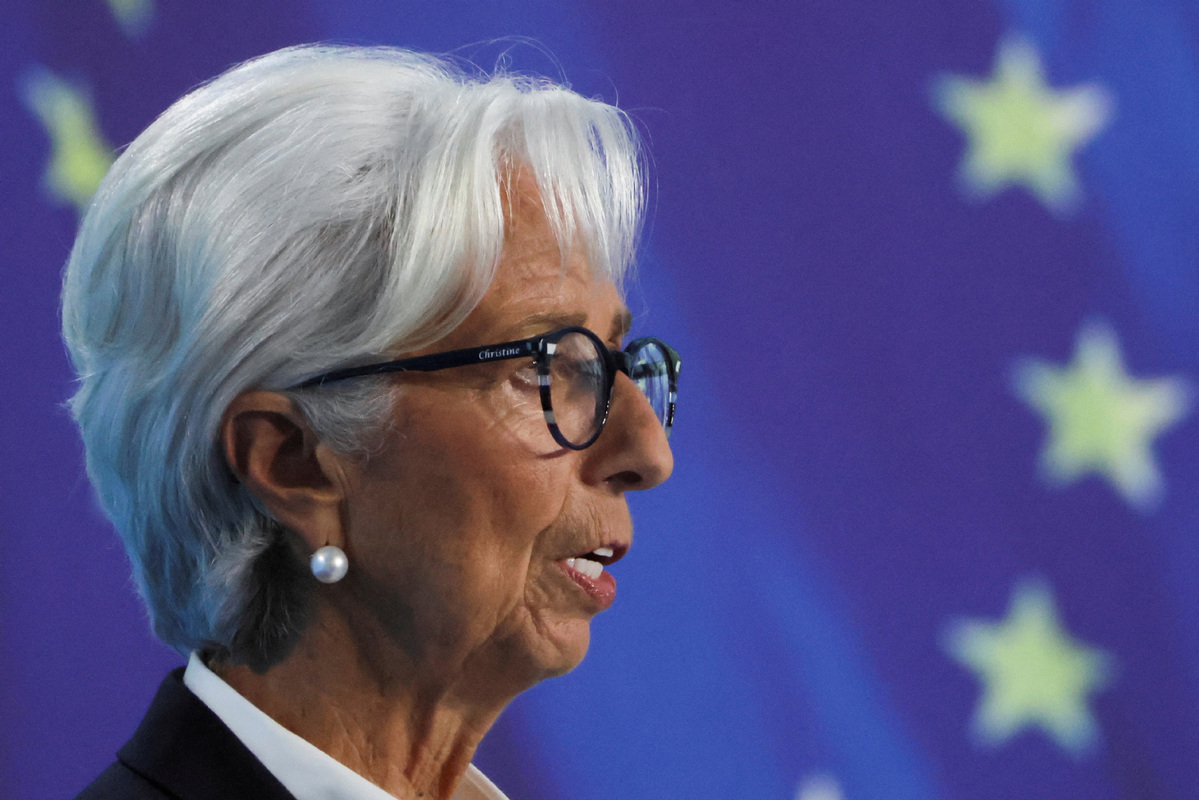ECB chief vows to 'stay the course' on inflation battle
By WANG MINGJIE | China Daily | Updated: 2023-01-20 07:37

European Central Bank President Christine Lagarde said inflation in the eurozone remains far too elevated, and she is determined to "stay the course" in countering it with higher interest rates.
In a panel discussion at the World Economic Forum in Davos on Thursday, Lagarde said: "Inflation by all accounts, however you look at it, it is way too high.
"Our determination at the ECB is to bring it back to 2 percent … and we shall stay the course until such time we have moved into restrictive territory for long enough so that we can return inflation to 2 percent in a timely manner."
Lagarde also said that the strong job market could feed the problem. "The job market in Europe has never been as vibrant as it is now," she said. "The unemployment number is at rock bottom compared with what we've had in the last 20 years. And the participation rate which matters as well, is also very, very high level and that is pretty much homogeneous throughout the euro area."
In the World Bank's latest report, the eurozone is forecast to fare particularly badly, experiencing zero growth throughout the year, compared with an estimated 3.3 percent expansion in 2022.
Lagarde said there is a more optimistic sense surrounding the European economy based on the data over the last few weeks.
"The rhetoric has moved from recession in Q3, Q4 and possibly plus, to recession in Q4 and Q1 of 2023, to now a small contraction and the leaders of some of the major players in Europe are arguing there will be no recession."
Christian Sewing, chief executive of Deutsche Bank, agrees there is more optimism in the economy, but said the underlying problem, high inflation, is not gone.
"Inflation is the thing, which is a poison for the economy … high inflation, or certain other structural reforms cannot go on, if we come into the situation, we potentially get inflation a bit down. But over time, we never get control of it."
Government borrowing
Mark Rutte, prime minister of the Netherlands, pointed out that European countries need to reduce government borrowing to bolster economic growth.
"We have to bring down government borrowing. It's still too high in Italy and France and other countries, and that is really hampering long-term growth. And in the short term, we have to spend hundreds of billions to support household incomes," Rutte said.
"But in the long term, this is not sustainable, so they have to become more targeted. And for the short term, we need to offset your extra spending with savings wherever we can find them or extra economic growth opportunities, because otherwise it could fuel inflation in itself."
Valdis Dombrovskis, commissioner for trade at the European Commission, said economic support measures for households are crucial in stabilizing the economy.The EU also needs a consistent macroeconomic policy, he said.
"We also need targeted measures to get energy prices down, and on another hand, we are accelerating our green transition, so moving faster toward renewables and energy efficiency measures," he added.
WANG MINGJIE in Davos, Switzerland
























